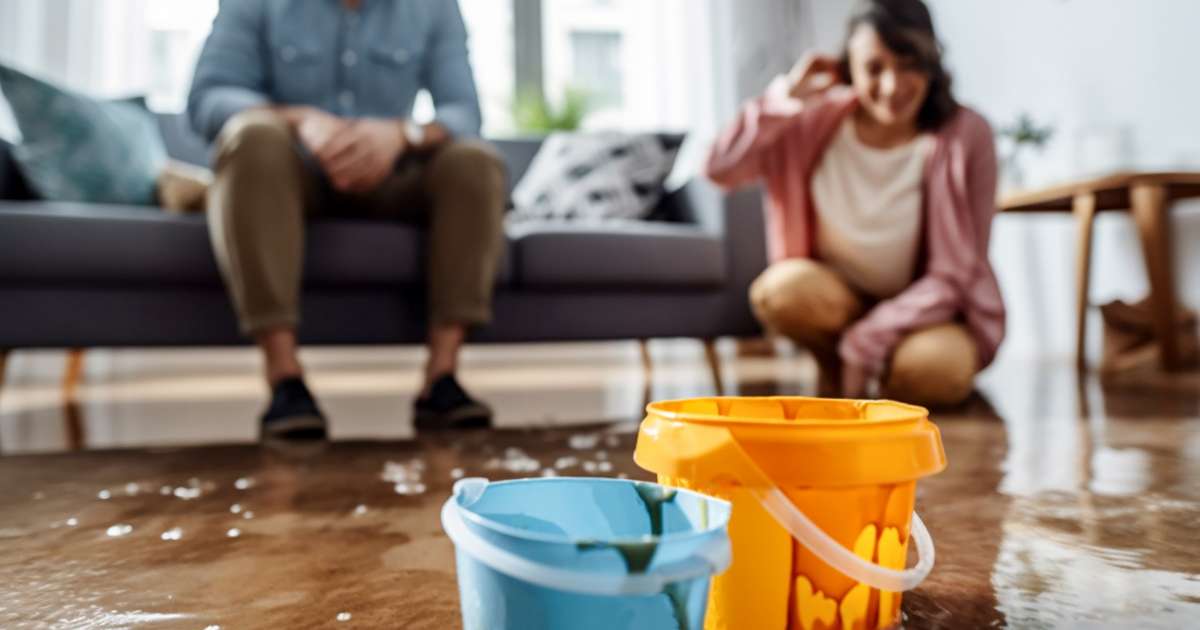You’re getting ready to sell your house, and now you’ve found some signs of mold damage. How will this affect your sale? Can you even sell a house with mold?
Mold sounds bad, but it’s pretty common. In a study done by the CDC (Centers for Disease Control and Prevention), they found that around half of all homes in the United States have mold. However, having mold in your house can impact how your home is perceived by potential buyers. According to The Appraisal Journal, up to 50% of potential buyers will lose interest if they discover a mold infestation. It could be harder to sell a house with mold, which is why it’s important to understand what mold is and how it can impact your sale.
Mold could be bad for your house and your health.
Mold is a type of airborne fungus that grows in damp spaces. The mere presence of mold is not always a cause for concern, but there are certain types of mold that can be harmful to your health, and if mold damage accumulates, it can lead to property damage.
According to the American Lung Association, around 90% of Americans spend the majority of their time indoors. Since mold spores are airborne, it is possible to breathe them in when there is mold present in a house. This means that mold can reduce indoor air quality and cause health problems.
Mold can lead to:
- Anxiety
- Depression
- Fatigue
- Headaches
- Skin rashes
Additionally, if mold is left untreated, it can also cause the integrity of your house to deteriorate over time as it grows and eats structural materials.
What causes mold?
While there are many different types of mold, they all need moisture. Common causes of mold include:
- Leaks
- Flooding
- Poor ventilation
- High humidity
- Condensation accumulation
If you can’t see any visible mold, signs of mold damage can include:
- Chipping or peeling paint/wallpaper
- Musty odor
- Water stains/discoloration
Where is mold commonly found in a home?
Since mold tends to grow in damp spaces, it commonly appears in the following places:
- Basements, attics, and crawl spaces
- Bathrooms
- Kitchens
- Around windows or doors
- On or under floors, walls, ceilings, and roofs
- Near pipes
- Near vents
How does mold affect your home’s value?
While mold is a normal occurrence in a house, it can affect your property value, depending on the location and extent of mold damage.
Mold on the exterior of your house doesn’t pose a big problem, as it isn’t likely to present a risk to your health or home’s structure. However, it’s still a good idea to get rid of any outside mold because it could spread indoors.
Mold inside the home is a bigger issue, as moisture can easily become trapped and cause the mold to grow and spread. If mold grows unchecked, it can reduce your house’s market value by an average of 20%–37%, as stated in a study published by The Appraisal Journal.
Can you sell a house with mold?
Yes. There are no federal or state laws that prevent you from selling a house with mold. Whether you’re selling with an agent, selling FSBO (for sale by owner), or selling to an off-market home buyer, you have two options:
- Get rid of the mold in your house
- Sell your house “as is”
When you sell a house with mold damage, you may need to consider offering concessions or lowering your sale price. Your selling options will depend on your finances and personal selling goals.
How to get rid of mold in your house
To stop mold from affecting your home sale, you’ll need to take the proper steps to remove it.
- First, you will need to assess the extent of mold damage in your house.
- You should seal off the mold with plastic, throw out dirty shoes, and remove moldy items.
- Make sure damp spaces are ventilated, especially basements, bathrooms, crawl spaces, and attics.
You may need to consider hiring professional help. According to the Environmental Protection Agency (EPA), DIY solutions are not recommended or allowed when infestations grow beyond a certain size, and professional mold remediation will be needed in those cases.

What is the average cost for mold remediation?
Mold remediation involves removing any mold present in your house, repairing mold damage, and remedying the conditions that led to the infestation of mold. Remediation costs vary depending on the type of mold, the extent of damage, and the location of your house. Mold removal costs an average of $2.50–$25 per square foot, and removing mold from an entire house could cost anywhere from $5,000–$30,000, depending on the size of your home.
You may be able to deal with mold on your own, but you are required to hire mold remediation professionals if the mold:
- Covers an area of more than 10 square feet
- Is in your HVAC system
- Is not possible to safely and effectively remove by yourself
If the mold is not easily visible, you will probably need to get a mold inspection as well, which can cost anywhere from $300–$1,000.
It’s likely that you’ll need to pay for all this out-of-pocket. Homeowners insurance doesn’t typically cover mold damage and removal unless it’s a result of a covered event, such as accidental water damage resulting from a problem with plumbing or your HVAC system.
Do you need to disclose mold damage when selling a house?
In most states, home sellers must provide a disclosure statement that outlines the history of the property, as well as any known defects. This includes present damage, any previous history of mold, and whether the mold was professionally treated.
Even if you live in a state that does not require a seller’s disclosure, it is still a good idea to inform potential buyers of mold. Proper documentation to provide during disclosure includes:
- Photos of the mold damage prior to remediation
- Documentation of any steps taken to resolve the mold issue
- Reports and receipts from any professional companies used to treat mold
If you don’t deal with your mold issue before selling, you could lower your asking price or offer to credit the buyer for the cost of mold remediation.
Ready to sell your house with mold?
Don’t let mold put a damper on your home sale. You can sell your house “as is” when you work with We Buy Ugly Houses®!
We’re off-market home buyers with over 29 years of experience in providing offers to sellers with properties in many different conditions, including mold damage. With our 3-step home-buying process, you get to:
- Bypass assessing the extent of your mold infestation
- Dodge expensive mold remediation costs
- Avoid scaring off potential buyers during disclosure or inspection
With We Buy Ugly Houses, you can sell your house fast and move into a new place without worrying about mold. When we make an offer, we can close fast, sometimes in as little as 3 weeks, but we work with our sellers to decide a closing time that works best for them. On top of that, you can leave anything behind that may have been affected by mold and we will take care of it for you. We pay all typical closing costs, we never charge commissions, and there are no hidden fees†.
Ready to say goodbye to your mold problem and sell your house? Reach out to your local property buyer today to get a free consultation.
This blog is for informational purposes only and should not be considered legal advice.










